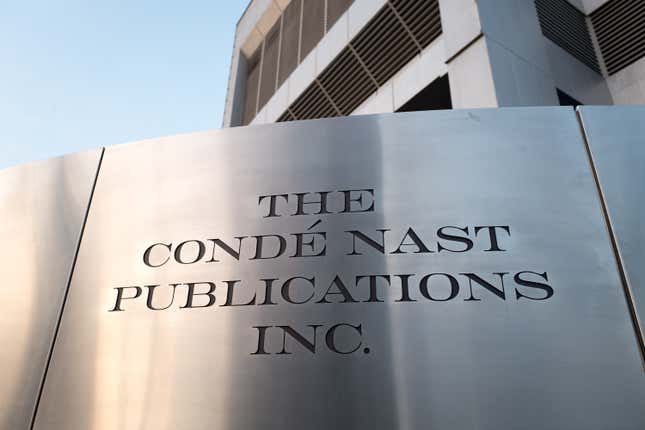Staffers at Vogue, Vanity Fair, and More Form Long-Awaited Union
As one Condé Nast worker told the Washington Post: "Prestige doesn’t pay the bills."
EntertainmentEntertainment

Workers at 12 Condé Nast publications informed the company on Tuesday that they had formed a union, the Washington Post reports. They’re organizing for better pay, salary transparency, job security for longtime contractors, and a more diverse workforce.
The Condé Nast Union consists of more than 500 editorial, production, and video workers at Allure, Architectural Digest, Bon Appétit, Epicurious, Condé Nast Traveler, Glamour, GQ, Self, Teen Vogue, Them, Vanity Fair, and Vogue. Nearly 80 percent of eligible workers have indicated their support for the effort, per the Post. The workers organized under the NewsGuild of New York, and the New York Times first reported on the organizing effort in December.
Four other Condé titles—Wired, The New Yorker, Ars Technica, and Pitchfork—have already unionized. The company voluntarily recognized those unions and workers at the broader Condé Union are hoping it will do the same here, rather than force an election with the National Labor Relations Board, or NLRB. (This is the kind of election you may have read about at the Amazon facility in Bessemer, Alabama, and at Starbucks stores across the country.)
While Condé did initially recognize the New Yorker Union, it took more than two years of negotiations, a strike authorization, and a 2021 protest outside the Manhattan townhouse of the company’s Chief Content Officer, Anna Wintour, in order to get a contract. During that campaign, union members revealed that New Yorker staffers were earning as little as $42,000 a year.
-

-

-

-

-

-

-

-

-

-

-

-

-

-

-

-

-

-

-

-

-

-

-

-

-

-

-

-

-

-

-

-

-

-

-

-

-

-

-

-








































